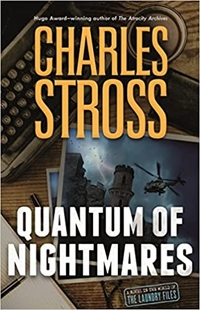Call Me Cassandra by Marcial Gala
 Friday, January 21, 2022 at 5:58AM
Friday, January 21, 2022 at 5:58AM 
First published in Argentina in 2019; published in translation by Farrar, Straus and Giroux on January 11, 2022
Had Raúl Iriarte been a half inch shorter, he would have avoided military service. Raúl’s father is short but muscular. He laments that Raúl, frail and physically weak, is just a little too tall to remain in Cuba. As soon as Raúl turns 18, Cuba sends him to Angola to support liberation forces in the Angolan Civil War.
Raúl goes willingly because he wants his mother to view him as a man. Yet his mother has long dressed Raúl as a woman so she can pretend that Raúl is her long-dead sister. Raúl has always preferred to dress like a woman. He is small, blonde and blue-eyed, not a typical Cuban. He doesn’t dress as a woman in his military unit, where he feels like a pretend soldier, but other soldiers still call him Marilyn Monroe or Olivia Newton-John. His captain regularly rapes him, supposedly because Raúl reminds the captain of his wife in Cuba. The captain depends on Raúl’s silence, as opposed to his own conduct, to preserve his good name.
Most people in Raúl’s life, including his brother and father, assume that he is gay, but Raúl feels no particular attraction to either gender. Raúl believes he has a gift of prophecy, like Cassandra from Greek mythology. He introduces himself as Cassandra when, before entering the military, he dresses as a woman and goes clubbing. Raúl likes being in the company of women — he gets along with his father’s Russian lover and feels some sympathy for his mother’s devotion to her lost sister — but only while partying with a transvestite friend who accompanies him to clubs does Raúl feel open to express himself.
In Angola, Raúl carries on an internal dialog with the mythical Cassandra. He seems to believe that he once existed as Cassandra, although he understands that others will assume he was influenced by reading The Iliad when he was still “a hypersensitive boy.” He believes he can sense the dead and the ancient gods. He believes he can foresee death, including his own, and his family’s reaction to it.
For such a powerful story, Call Me Cassandra is written in a remarkably gentle voice, Raúl’s first-person voice. Raúl spends his young life thinking about mythology, ultimately constructing one of his own. Given that Raúl’s death is foretold, the story is bleak. It is a story of a young man who cannot live as he chooses, whose gender choices are made in defiance of Cuban society, whose desire to study literature in a university is denied by a Cuban government that sends him to war, and whose freedom to live even a pleasureless life is taken away by a brutal military captain. Raúl accepts his fate but, as the last pages make clear, does not welcome it. Call Me Cassandra illustrates how repressive societies (and even subcultures of toxic masculinity within liberal democracies) destroy the concept of freedom that they claim to hold so dear.
RECOMMENDED
 TChris |
TChris |  Post a Comment |
Post a Comment |  Cuba,
Cuba,  Marcial Gala in
Marcial Gala in  General Fiction
General Fiction 


